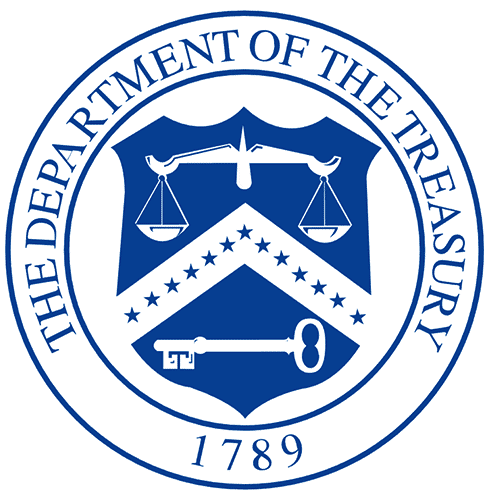
Department of the Treasury
Established: September 2, 1789
Mission: To manage the national debt accumulated to fund the war for independence.
Reason for creation: Treasury grew out of early efforts to ensure proper and efficient handling of the national debt in the face of weak economic and political ties between the colonies. Several efforts from 1775 through the 1780s were launched by the Continental Congress first, to establish the colonies as a sovereign nation able to secure domestic and foreign loans, and second, to develop an organization capable of administering the nation’s finances and bringing the debt under control. By the time that the new Constitution was signed in 1787, many colonial leaders had been persuaded that, whatever misgivings there were about giving the federal government too much control, some centralization of authority was needed in order for the new nation to survive. Establishing a Department of Treasury was one of the earliest acts of the first Congress of the United States.
Impacts: Under the first Secretary of the Treasury, Alexander Hamilton, Treasury assumed the states’ war debts and committed to a dollar-for-dollar repayment of the $75 million total. In taking these actions, Hamilton restored public confidence in the nation’s economy. His further activities stimulated investment in the Bank of the United States, which served as the federal government’s fiscal agent.
The Treasury Department became the de facto agency overseeing many of the new functions taken on by the federal government. Eventually, these services were spun off to create new agencies: the Postal Service in 1829, the Department of the Interior in 1849, and the Department of Commerce in 1903. Even the Coast Guard, the nation’s original navy, operated under the jurisdiction of the Treasury until 1967.
Today, the Treasury Department continues to manage the debt. It also collects taxes (through the Internal Revenue Service), prints and manages the currency, investigates and prosecutes financial crimes, supports expansion of credit in low income communities, and enforces laws relating to alcohol and tobacco.

